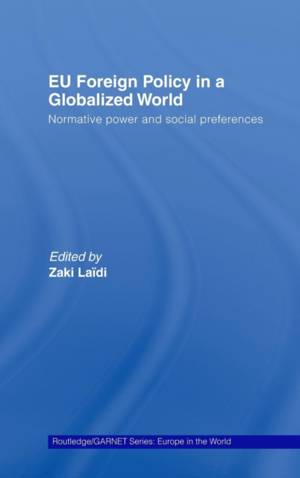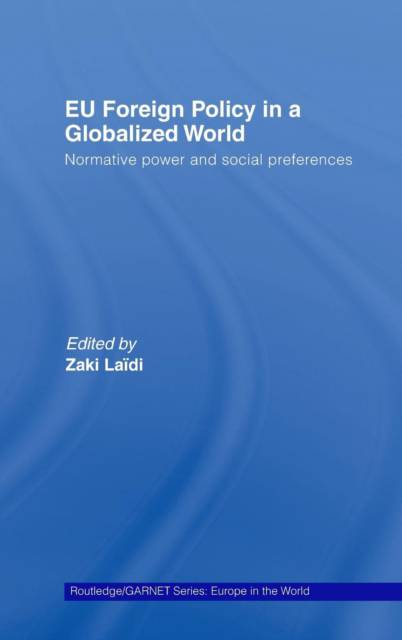
- Retrait gratuit dans votre magasin Club
- 7.000.000 titres dans notre catalogue
- Payer en toute sécurité
- Toujours un magasin près de chez vous
- Retrait gratuit dans votre magasin Club
- 7.000.0000 titres dans notre catalogue
- Payer en toute sécurité
- Toujours un magasin près de chez vous
EU Foreign Policy in a Globalized World
Normative power and social preferences
Description
Written by leading experts in the field, this volume identifies European collective preferences and analyzes to what extent these preferences inform and shape EU foreign policy and are shared by other actors in the international system.
While studies of the EU's foreign policy are not new, this book takes a very different tack from previous research. Specifically it leaves aside the institutional and bureaucratic dimensions of the European Union's behaviour as an international actor in order to concentrate on the meanings and outcomes of its foreign policy taken in the broadest sense. Two outcomes are possible:
- Either Europe succeeds in imposing a norms-based international system and thus, in this case, its soft power capacity will not only have been demonstrated but will be enhanced
- Or, on the contrary, it does not succeed and the global system will become one where realpolitik reigns; especially once China, India and Russia attain a preponderant influence on the international scene.
EU Foreign Policy in a Globalized World will be of interest to students and scholars of European Union politics, foreign policy and politics and international relations in general.
Spécifications
Parties prenantes
- Editeur:
Contenu
- Nombre de pages :
- 224
- Langue:
- Anglais
- Collection :
Caractéristiques
- EAN:
- 9780415433631
- Date de parution :
- 01-06-08
- Format:
- Livre relié
- Format numérique:
- Ongenaaid / garenloos gebonden
- Dimensions :
- 155 mm x 234 mm
- Poids :
- 476 g

Les avis
Nous publions uniquement les avis qui respectent les conditions requises. Consultez nos conditions pour les avis.





